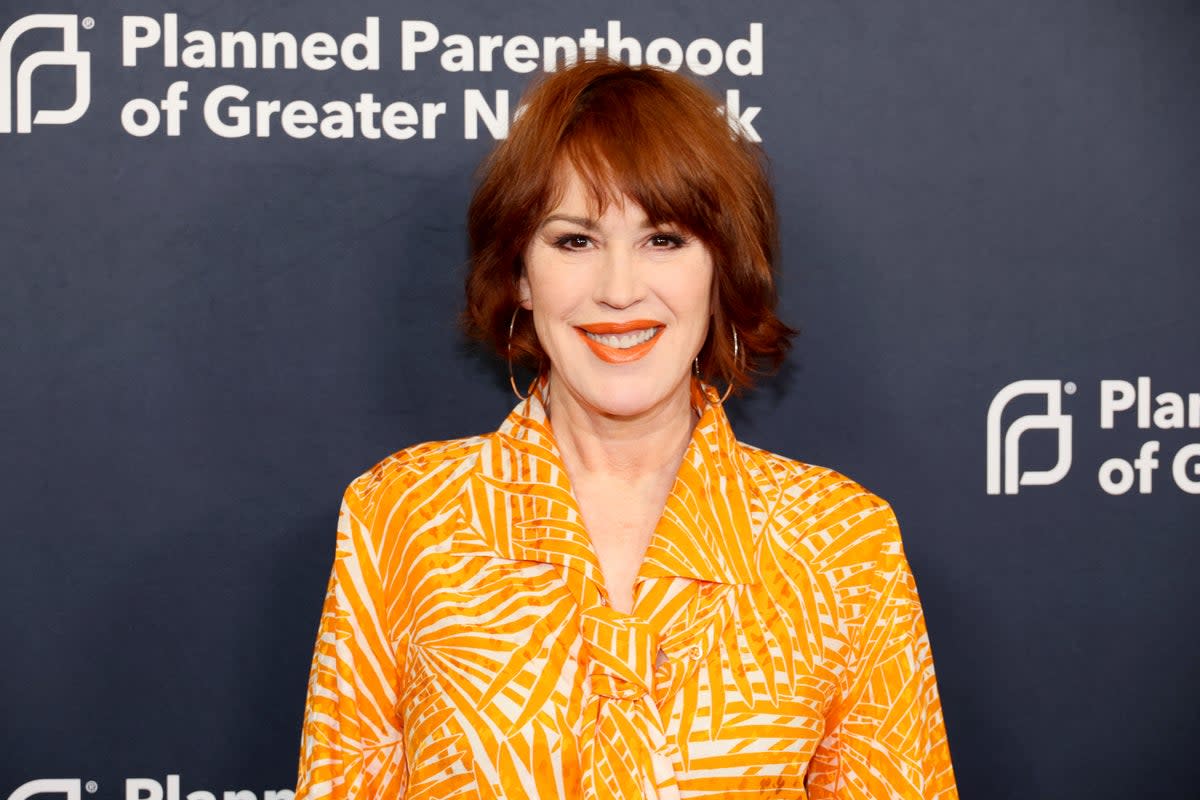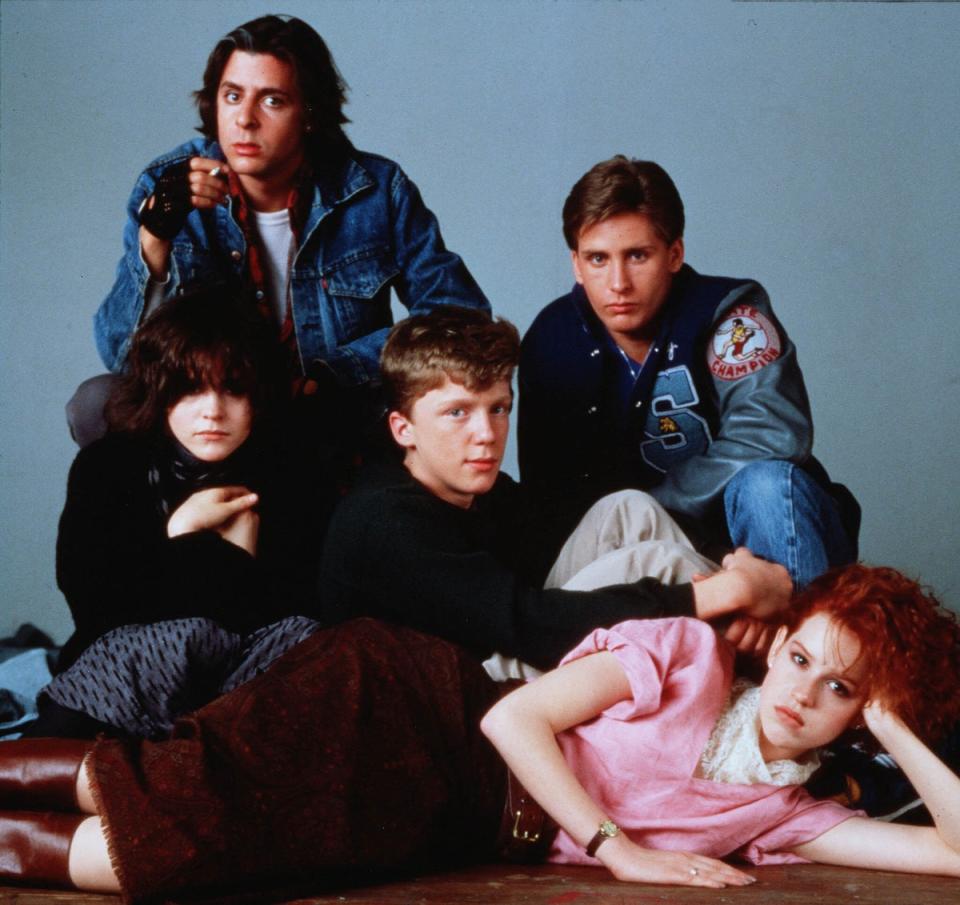Molly Ringwald says she was ‘taken advantage of’ by Hollywood predators

- Oops!Something went wrong.Please try again later.
Molly Ringwald has said that ”predators” took advantage of her when she was a young actress in Hollywood.
The Breakfast Club star described being shy and introverted as a teenager and still ending up in “questionable situations” with older media executives.
“I was in Hollywood, just because I was so young, really, and basically kind of a shy, introverted person. I wasn’t into kind of like going out to clubs,” Ringwald said on the latest episode of WTF with Marc Maron podcast.
“I feel like I’m a little – I’m more social now than I was then, but I was just too young. And it was awkward.”
“Well, you’re lucky you didn’t get taken advantage of or got into some sort of horrible situation,” Maron said.
“Oh, I was taken advantage of. You can’t be a young actress in Hollywood and not have predators around,” Ringwald responded.
“But I wasn’t raped by Harvey Weinstein. So I’m grateful for that.”

Ringwald said that while she was “definitely in questionable situations” as a young actor, she relied on her “incredible survival instinct and a pretty big superego” to “protect” herself from predators in the industry.
“But, yeah, it can be harrowing,” she said.
“And I have a 20-year-old daughter now who is going into the same profession, even though I did everything I could to convince her to do something else. And it’s hard.”
Ringwald was one of the biggest screen personalities of the 1980s, starring in films like Sixteen Candles and Pretty in Pink, both directed by John Hughes.
Ringwald has previously talked about some of her iconic roles and how rewatching them made her realise how misogynistic some of them were.
“There is a lot that I really love about The Breakfast Club but there are elements that haven’t aged well – like Judd Nelson’s character, John Bender, who essentially sexually harasses my character,” she told The Times in April this year.
“Back then, I was only vaguely aware of how inappropriate much of John’s writing was,” she wrote in a personal essay for The New Yorker in 2018, adding that Hughes’ writing “could also be considered racist, misogynistic, and, at times, homophobic”.
